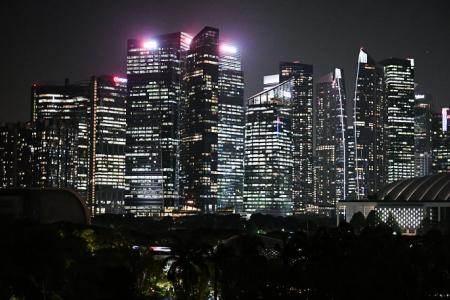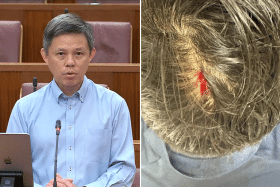Electricity prices can go up to recover cost of initiatives
Higher electricity prices could be on the cards, under new changes to a law that will help the authorities recover the cost of initiatives undertaken to safeguard Singapore’s electricity supply in a climate-friendly way.
Speaking in Parliament on Sept 9, Second Minister for Trade and Industry Tan See Leng noted that the Energy Market Authority (EMA) will need to undertake new initiatives for energy security, market development and the transition away from pollutive fossil fuels to cleaner forms of energy.
The changes to the existing EMA Act, passed in Parliament on Sept 9, will allow the Government to recover costs associated with such initiatives, to ensure the proper functioning of Singapore’s energy system, he said.
On the energy security front, he cited the example of the standby liquified natural gas facility, which was introduced by the EMA in 2021 to stockpile supplies of the fuel, during the energy crisis after Russia invaded Ukraine.
“The (standby facility) reduced volatility in the wholesale electricity market and gave retailers the assurance to offer electricity contracts to more consumers,” Dr Tan said. “However, EMA is unable to legally recover the operating costs of such a critical facility despite the benefits conferred to all electricity users.”
The amended law will help EMA recover some of these costs, Dr Tan said, and assured the House that the authority will not seek to make any profit.
The Minister for Trade and Industry must approve any new rates that EMA may propose, Dr Tan said, adding that a cost recovery advisory committee that will comprise non-Government representatives will be convened to provide the minister with independent advice on EMA’s proposals.
Dr Tan also said that the costs will be recovered from people who benefit from these initiatives, in line with the “user-pays” principle.
This is not new, said Dr Tan, as consumers currently pay for the energy-related services they use, such as the billing and meter reading services provided by SP Services.
“Households and businesses and understandably concerned about whether this proposal will increase electricity prices. I would like to assure consumers that EMA will only introduce new initiatives when necessary. EMA will first consult and provide reasonable notice to affected consumers before introducing new rates,” he added.
On Sept 9, the amendments to the EMA Act, Electricity Act 2001, and Gas Act 2001 that were passed in Parliament will give EMA more regulatory teeth in ensuring Singapore’s energy security amid geopolitical tensions and climate change.
Other changes include provisions that give electricity and gas licensees access to critical infrastructure that may be owned by others, if such facilities are needed to support power generation units or for cross-border electricity imports.
The amendments to the legislation will empower EMA to direct owners and occupiers of critical energy infrastructure to allow licensees to access this infrastructure, and enter into agreements for this purpose.
Singapore has a multi-prong approach to safeguarding its energy security in a low-carbon way.
This includes maximising the amount of sunshine it can tap for solar energy, exploring potential fossil fuel alternatives such as geothermal and hydrogen, and importing low-carbon electricity from its neighbours.
The legislative amendments comes amid Singapore’s progress in importing low-carbon electricity from its neighbours. It has inked deals with Cambodia, Indonesia and Vietnam to import up to 5.6GW of low-carbon electricity.
Get The New Paper on your phone with the free TNP app. Download from the Apple App Store or Google Play Store now


